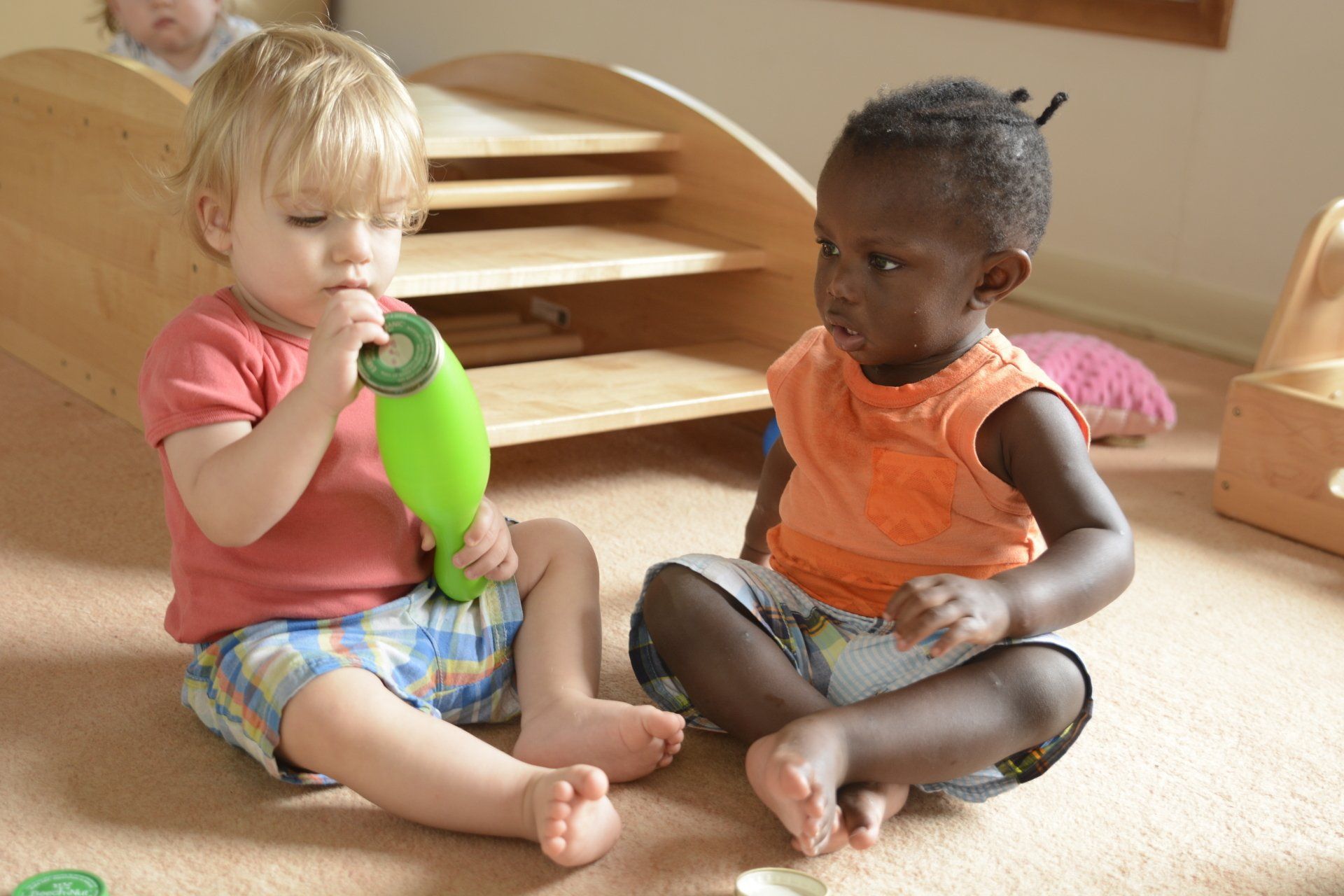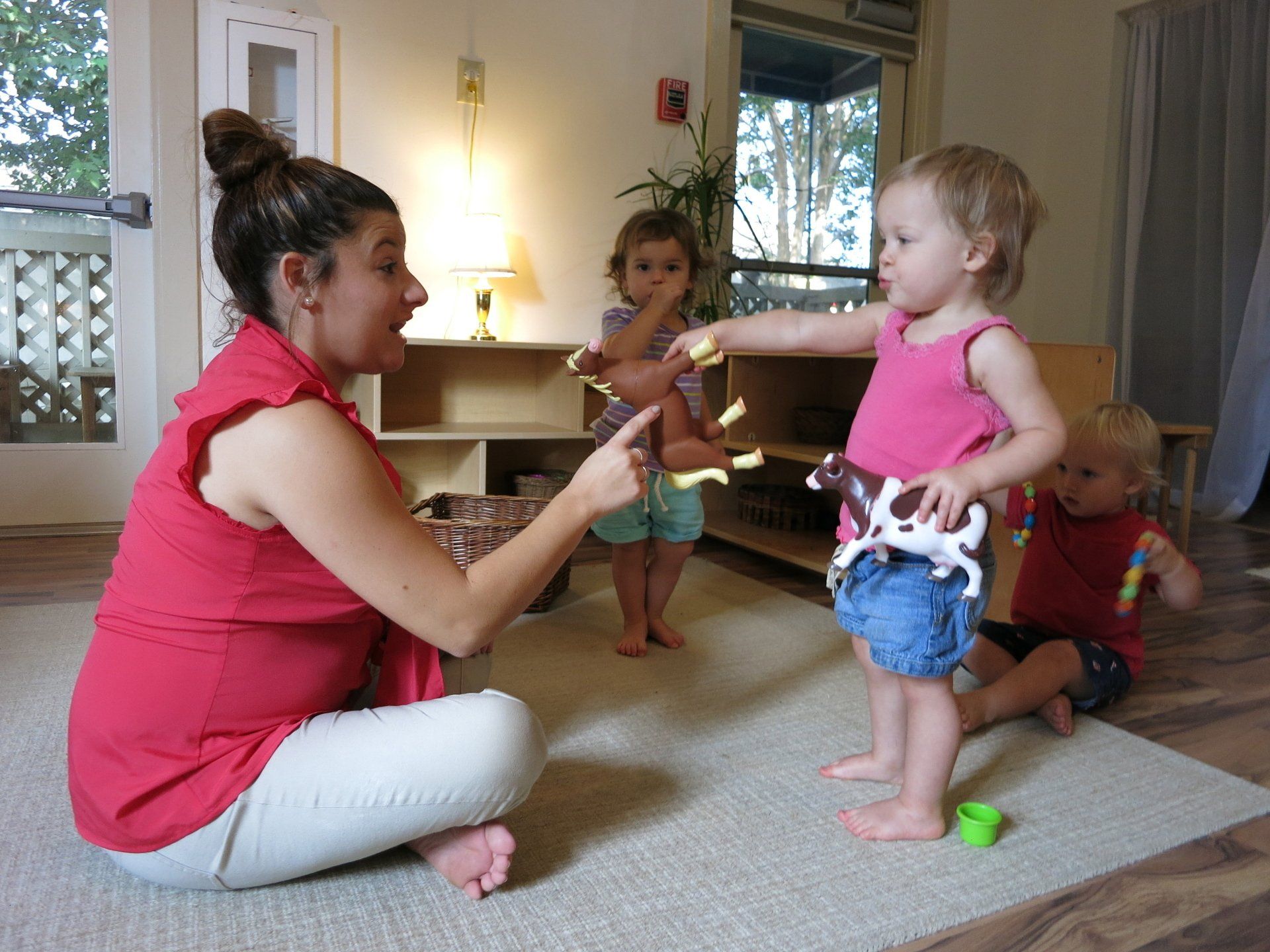Intentional Community Preschools- Bigger Bang for Your Preschool Buck

Recently a friend referred to our childcare center as an intentional community model. Unfamiliar with the term, I soon discovered intentional communities are planned communities defined by teamwork encompassing a group of people sharing a common vision or ideal.
Here, Magda Gerber’s parting words in Your Self-Confident Baby best describes the shared value system of MMP School:
A respectful beginning is an investment in the future of the relationship between your child and you, your child and others, and in your child’s exploration of the world. A RIE beginning helps to develop a competent, confident child.

Irregardless of where your children attend preschool or where you choose to make your childcare profession- adults caring for children invest significant time, resources, and preschool dollars towards the endeavor. According to the National Association for the Education of Young Children (NAEYC), financing early childhood care averaged $11,500 annually- and that was in the mid 1990s.
Applying Intentional Community Principles in choosing a preschool program for your child can help parents get the most bang out of their preschool bucks. Here are some tips:
1. Define your family value system- identify the characteristics of the people you would like to see involved with your family. Young children absorb the attitudes and culture of the adults around them; what would you like these attributes to be? Are these traits congruent over time? In other words, what kind of person do you see your child as a young adult and can these attributes translate in what we provide him at infancy?
2. Research opposing view points and find the one that fits best with your individual family parenting style- does one approach advocate scheduled feedings and another not? What do you feel is “right” for your baby? Avoid asking friends and family for their advise at this juncture as it tends to cloud your own investigation as this will afford a baseline for later evaluation.
3. Tour and observe a multitude of childcare facilities even if you think you already know where you would like your child to go- you may be surprised by what you discover. Use your value system and research to drive your query on how the center implements theory into practice; recruits, trains and supports caregivers; and involves parents as a community.
4. Ask about the leadership and future vision of the centers you are considering- knowing how a school is planning for the care and well-bing of its program in the next three, five, and even ten years will allow an understanding on how the program manages its resources. The management of a preschool’s resources either in securing equipment, providing for teachers, or enhancing curriculum offerings will affect your child’s experience and is also a way to better gauge likemindedness between school leadership and parent values.
5. How are parents connected with school life? A multitude of opportunities exist to connect families with what is going on with your child during her preschool hours. What measures are in place to keep parents informed on child development, in communication with their teachers, connected as a community, or involved during the day? It’s helpful to ask prospective preschools why they chose the activities in place and how it enhances their preschool offering.
6. Ask to see a copy of the Parent Handbook prior to registering your child- It is impossible to gather all of the information necessary to ensure you are making the wisest longterm decision for your child in a few short meetings or one observation. Understanding the policies and procedures you will be asked to adhere to as a member of the school community before you register or enroll your child will assist the communication process.

Children do not separate where they learn and play during their absorbent period of learning (the preschool years). Parents are THE primary source of a child’s learning during early childhood, which is why it is critical that preschool offerings are consistent with home expectations. Otherwise, your child will not be secure in his knowledge of what is expected at home OR at school. The result? Well, children are wired to test the limits in order to internalize expectations. Which means, when school and home life are drastically different, a child will TEST LIMITS at both home and school until she reaches a certainty on understanding “the rules.” This is trying for both parents and teachers and in some ways, is throwing your investment out the door.

When choosing a preschool that represents your family core value system, do it with intent. Current research supports It All Starts Here.
You might also like



CHILDCARE PROGRAMS
ADULT EDUCATION
QUICK LINKS
Little Learners Lodge
